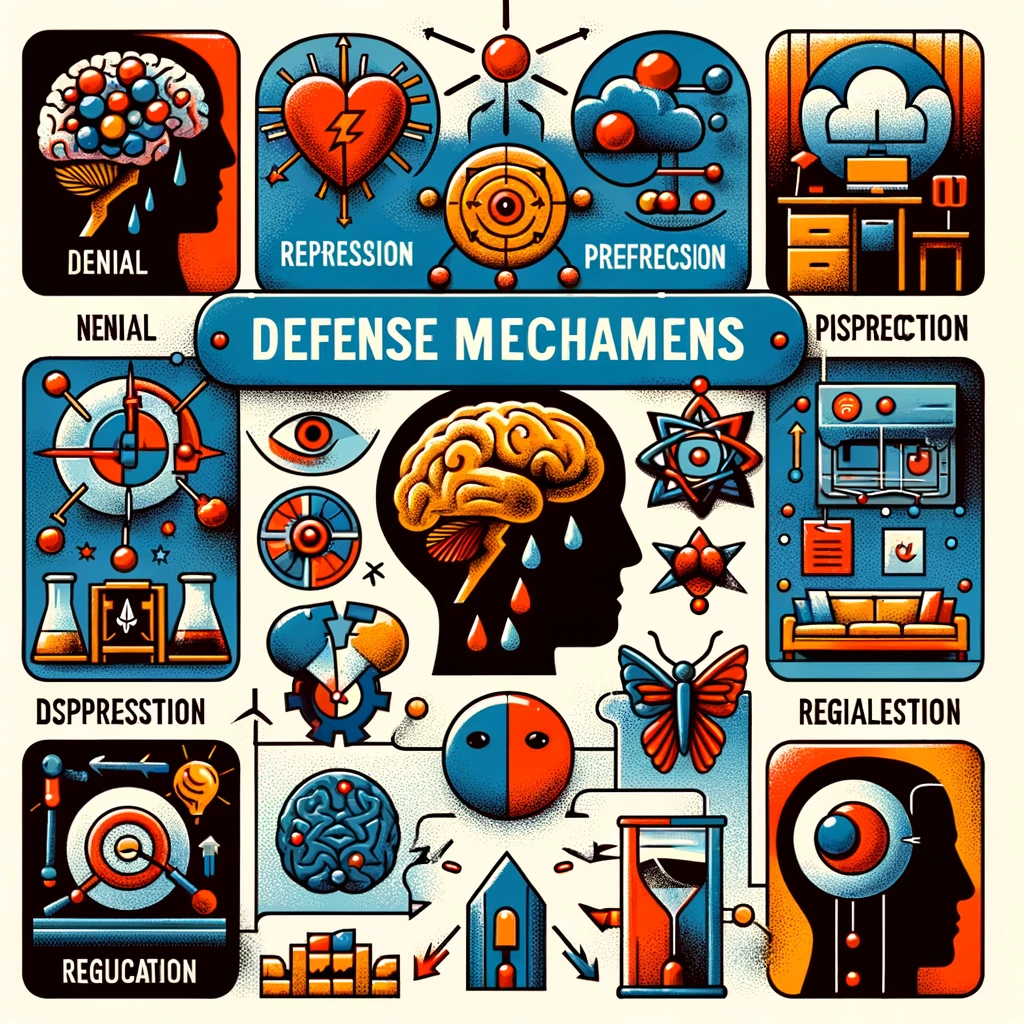Defense mechanisms are psychological strategies that are unconsciously used to protect a person from anxiety arising from unacceptable thoughts or feelings. Sigmund Freud first identified them, and later his daughter, Anna Freud, elaborated on them.
Understanding Defense Mechanisms
Defense mechanisms operate at an unconscious level and help ward off unpleasant feelings or make good things feel better for the individual. They can distort, deny, or falsify reality to make it less threatening.
Common Defense Mechanisms
- Denial: Refusing to accept reality or fact, acting as if a painful event, thought, or feeling does not exist.
- Repression: Keeping distressing thoughts and feelings buried in the unconscious.
- Projection: Attributing one’s own unacceptable thoughts, feelings, and motives to another person.
- Displacement: Redirecting emotions to a substitute target.
- Regression: Reverting to an earlier stage of development when faced with stress.
- Rationalization: Justifying one’s behaviors and motives by substituting “good,” acceptable reasons for these behaviors.
Case Study and Analysis
Consider the case of John, who often uses rationalization to justify his excessive drinking. He argues that it helps him to relax and be more sociable, ignoring the negative consequences of his behavior. This is a classic example of using defense mechanisms to cope with uncomfortable feelings or situations.
Statistics and Research Findings
Studies suggest that the use of defense mechanisms is linked to one’s mental health. For instance, a study in the Journal of Personality assessed over 400 people and found that those who employed more mature defense mechanisms had better mental health outcomes.
Criticisms and Counterarguments
Critics argue that defense mechanisms are difficult to empirically measure, and their effectiveness in protecting mental health is often debated. Additionally, excessive reliance on certain defense mechanisms, like denial or projection, can lead to unhealthy patterns of behavior.
In conclusion, defense mechanisms are an integral part of human psychology, serving as tools our minds use to cope with stress, anxiety, and internal conflicts. While they often operate unconsciously to shield us from unpleasant emotions or realities, understanding them can offer profound insights into our behavior and emotional well-being.
The various defense mechanisms, from denial and repression to projection and rationalization, reveal the complexity of the human psyche. They illustrate how we navigate through life’s challenges and protect our sense of self. However, overreliance on certain defense mechanisms can lead to unhealthy patterns, affecting our relationships and mental health.
Recognizing and understanding our defense mechanisms is a step towards emotional maturity and psychological health. It enables us to confront and process our emotions more healthily, fostering personal growth and better interpersonal relationships.
Defense mechanisms are not just psychological concepts but mirrors reflecting our deepest fears and desires. By exploring and understanding them, we can embark on a journey towards a more conscious and fulfilling life.
This exploration of defense mechanisms offers valuable lessons for anyone interested in psychology, mental health, and personal development. For those looking to delve deeper into this fascinating aspect of human behavior, the provided reading material and resources will be an excellent starting point.




